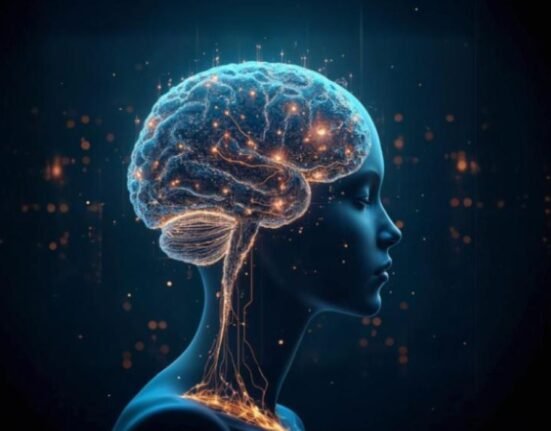The evolutionary viewpoint on human emotion perception suggests that the existence of emotions intended to shape behaviour should be mirrored in immunological and physiological responses. Numerous studies have been conducted on the intricate relationships between the immune system and the central nervous system in schizophrenia and depression. Conversely, not much research has been done on how happy people are, and how that affects immunity and other physiological markers.
Emotions and the Immune System
Emotions have a crucial role in the development of autoimmune illnesses, HIV, cancer, and cardiovascular disease. Recent studies have examined the precise physiological reactions brought on by pleasurable stimuli. The immune and endocrine systems were observed in response to participants being exposed to pleasurable stimuli including scents and emotionally charged images. The findings showed that pleasant feelings caused salivary cortisol levels to drop and secretory immunoglobulin A levels to rise.
Read More: The Psychology of Money and Happiness
We still don’t fully understand how positive feelings, as opposed to negative ones, are generated in the brain and interact with the immune system. This review examines the relationships between immunological function, psychological well-being, and physiological indicators of emotional style. There is evidence to back up the theory that those with more negative affective styles have a harder time triggering their immune system and may be more prone to sickness than people with more positive affective styles. Further studies are required to further our understanding of the favorable impacts of pleasant emotional states on the immune system and physiology as well as their positive implications on health.
The Study of Pleasure
Even though the field of clinical neuropsychology is still in its infancy, the study of pleasure has already contributed some exciting new understandings to our understanding of human behaviour. Before going into detail on the physiology, development, and link of happiness to the immune system, it must be clearly defined. “Webster” defines happiness as demonstrating, experiencing, or being marked by joy, satisfaction, or pleasure. It is also described as “characterized by good luck; fortunate.” being very adaptable, joyous, upbeat, and transparent. The modern English term “Hap,” which implies fortune, comes from the Old Norse word “happy”. It entered Middle English through borrowing.
Read More: The Psychology of Happiness
Emotional perception, expression, and feeling are evolutionary processes. A wide range of emotions are available to manipulate human behaviour, and they are associated with immunological and physiological responses that are likely mediated by the central nervous system (CNS). When an emotional pattern is defined as inherent when it is shaped by the genetic constitution, it is anticipated to have close relationships with other main systems in the human body.
The cross-cultural universality of notions characterizing this condition and the widespread acceptance that human mood has a genetic component both attest to the effect of human genetic heritage on happiness. There are two connections between the study of pleasure and the life sciences: the first is the evolutionary viewpoint, and the second is the neurological approach. The field known as “affective neuroscience” is concerned with learning about the neural underpinnings of emotions, particularly those that influence happiness. Two lines of reasoning are suggested by the evolutionary perspective:
- The environment’s significance and,
- The significance of the senses. We will simply provide a brief description of the neurological approach in this review.
Since all animals have brains that are capable of feeling pleasure, they will engage in stimuli that cause their appropriate brain circuits to fire when given the chance. The ability to comprehend and control circumstances and our surroundings allows humans to produce a variety of artificially manufactured replacements, including drugs, artificial sweeteners, and pornography, in addition to obtaining vast amounts of naturally occurring rewarding stimuli. This makes humans unique in the animal kingdom. It is important to note, nevertheless, that the human central nervous system is not constantly reaping an obvious benefit or going through a punishment.
Only a small portion of the day is spent in the mind by the more material emotions. However, certain feelings may permeate the whole day—whether they be happy or bad, like love or worry. Nonetheless, the majority of individuals appear to believe that life is generally good. In light of these results, the idea of the “default positive mood”—which holds that, under normal circumstances, the central nervous system (CNS) is programmed to provide an optimistic outlook—has been investigated. Several studies suggest that provided their fundamental requirements are satisfied, most individuals find happiness and optimism in life. We can tackle the difficult problem of health and happiness from this point on.
While it seems evident that happiness depends on health, it is less clear how much happiness depends on health. A link between lifespan and happy emotions has been discovered, supporting the hypothesis that being in a positive mood might have biological benefits. Furthermore, research conducted in 1998 by Peterson et al. revealed evidence of a negative correlation between pessimism and lifespan. Therefore, to create pharmacological, interpersonal, and environmental treatments that will improve our happiness and prolong and multiply our lives, we must comprehend the impact of good emotions on the human body. Reaching these objectives will only be feasible if we start to sort out the intricate immunology and physiology of pleasure.
Read More: 10 Best Books to Read For Self-Development in 2024
The Happy Physiology
Emotional reactions are parts of intricate physiological connections that impact the body’s capacity to fend against or recover from illness. Health may be improved or harmed by a variety of actions, such as nutrition, exercise, smoking cessation, and shielding oneself from dangerous environmental influences.
What factors influence contentment?
The central nervous system (CNS) is not a “closed” system, though, and how it interacts with external factors and biological markers of health is crucial in understanding the reciprocal consequences of positive emotions. Humans have evolved to possess both eudaimonic and hedonic forms of well-being. While hedonic well-being is largely concerned with positive emotions like happiness and contentment, eudaimonic well-being is essentially a concept of intrapsychic self-development and personal improvement.
Joy and the Immune System
Solomon and colleagues presented the first research in the contemporary age to concentrate on the immunological consequences of pleasant emotions in 1974. They also defined the mechanism by which emotions generate immune system disturbances. Since the initial attempts to describe the relationships between human mood, affect, emotional states, and the immune system, an increasing amount of data has been gathered.
Read More: 10 Mood Boosters that are Absolutely Free
Summing Up
According to scientific research, happiness may have a significant positive impact on your health. To begin with, happiness encourages a healthy way of living. In addition, it could strengthen your defences against stress, strengthen your heart, and lessen discomfort. Additionally, it could potentially lengthen your life. Even while more investigation is necessary to fully comprehend how these impacts function, there’s no reason you can’t begin putting your pleasure first right away. Not only will concentrating on what brings you joy, but it may also help you live a longer and happier life.
Read more Articles on Psychologs
- The Psychology of Happiness
- Happiness and its Relation with Long Life
- The Psychology of Money and Happiness
- Lack of sleep reduces happiness and increases anxiety: Study
- What Makes You Happy: Exploring the Psychological Foundation of Happiness
References +
- Happiness and Your Immune System | Psychology Today https://www.psychologytoday.com/us/blog/the-happiness-doctor/201706/happiness-and-your…
- How Being Happy Makes You Healthier Coyle https://www.healthline.com/nutrition/happiness-and-health#TOC_TITLE_HDR_10
- How Happiness Boosts the Immune System Marchant & magazine https://www.scientificamerican.com/article/how-happiness-boosts-the-immune-system/
- The Link Between Happiness and Your Immune System Anderson & Migala https://www.shape.com/lifestyle/mind-and-body/happiness-and-immune-system
- The immune system and happiness Y;https://pubmed.ncbi.nlm.nih.gov/17027886/













Leave feedback about this